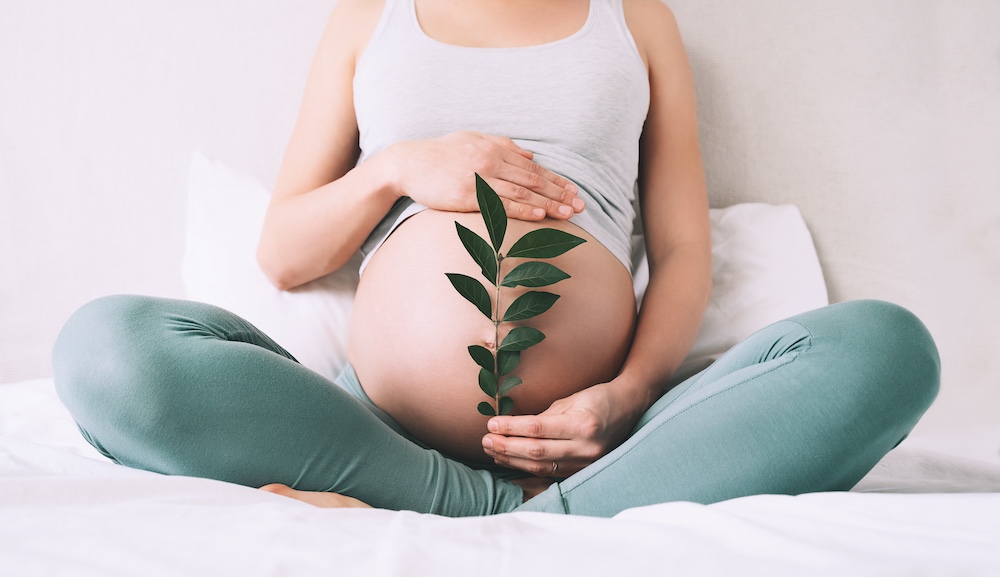Starting a family is exciting, but getting pregnant can take time. Some conceive right away, while others wait months. This period can be stressful, but understanding how to increase likelihood of pregnancy can ease the journey and make it more manageable.
Let’s explore some effective tips.
Understanding the Basics of Fertility
Every month, your body goes through hormonal changes that help an egg mature in the ovary. The timing and duration of this process can vary for each woman, but generally, it takes about two weeks from the start of your last period for an egg to mature and be released. This release process is known as ovulation.
During ovulation, the mature egg travels from the ovary down the fallopian tube towards the uterus. The egg remains viable for about 24 hours after its release. Fertilisation occurs if a sperm cell meets and penetrates the egg within this timeframe. Once fertilised, the egg continues its journey to the uterus, where it implants itself in the uterine lining and begins to develop into a pregnancy.
To maximise your chances of getting pregnant, it’s important to have sex in the days leading up to and during ovulation. This is because sperm can live up to five days in the female reproductive tract. Having sperm already present when the egg is released increases the likelihood of fertilisation.
Tracking your menstrual cycle can help you identify your fertile window. This is typically around 12 to 16 days before your next period is due. During this time, your body produces more cervical mucus, which becomes clear and slippery, providing a favourable environment for sperm to swim through the cervix to meet the egg.
Tips on How to Increase Likelihood of Pregnancy
Time Sex for Better Pregnancy Chances
To increase the likelihood of conception, it’s essential to time intercourse correctly within your cycle. For those with regular menstrual cycles, ovulation usually occurs about two weeks before the next period.
According to experts, The fertile window spans from five days before to one day after ovulation. The chances of conception are highest as you approach ovulation.
For those with irregular cycles, predicting this fertile period can be more challenging, but various methods are available to help accurately identify ovulation and the best days for conception.
Using an Ovulation Test Kit
Ovulation test kits are simple to use and work similarly to pregnancy tests. Begin testing by urinating on the strips once or twice daily, starting a few days before your expected ovulation.
These strips measure the increase in luteinizing hormone (LH) that occurs right before ovulation. A positive result indicates the best days to have sex are that day and the next, as fertility declines rapidly after the LH surge.
These kits are readily available at most pharmacies without a prescription.
Observing Cervical Mucus Changes
As ovulation approaches, your oestrogen levels increase, causing your cervical mucus to become thin, slippery, and more abundant.
This change indicates a fertile period, making it a good time to have sex daily or every other day until ovulation.
After ovulation, the cervical mucus typically becomes thicker, stickier, and may look cloudy.
Preparing Your Body for Pregnancy
Before you start trying to conceive, it’s important to ensure you’re in the best possible health.
During this visit, you’ll discuss any current health issues and review or update your vaccinations, especially those like rubella or varicella that can’t be given during pregnancy.
You might also be screened for genetic conditions and address other health concerns.
Your doctor may suggest making lifestyle changes such as maintaining a healthy weight, eating a balanced diet with plenty of fruits, vegetables, and exercising regularly.
Cutting down on coffee or soda can help; the ACOG recommends keeping caffeine intake below 200 mg per day, which is about 1–2 cups of coffee.
The CDC advises taking a prenatal vitamin containing at least 400 micrograms of folic acid daily once you decide to conceive. Your doctor might adjust this dose to meet your specific needs. Folic acid is important for reducing the risk of certain birth defects.
Healthy Habits for Better Fertility
Staying active is beneficial for maintaining a healthy weight, but excessive exercise can negatively affect ovulation. Dr. Goldfarb explains that too much exercise might prevent ovulation.
The threshold for “too much” varies, but if you’re an avid exerciser with regular periods, your routine is likely fine.
However, if your cycle becomes shorter and your period occurs less than 14 days after ovulation, it might be time to cut back. Monitoring your cycle can help you determine this.
To improve your chances of conceiving while still reaping the benefits of exercise, aim for moderate activities like brisk walking for about 2.5 hours a week, or 30 minutes a day, five days a week.
Quitting smoking is also crucial, as Dr. Hillard notes that smoking affects oestrogen levels and ovulation.
Lastly, don’t stress too much about timing. “Eighty-five percent of women will become pregnant within a year of trying,” says Dr. Hillard.
Reduce Stress for Better Fertility
Avoid getting overly stressed about trying to conceive. While it might sound cliché, staying calm can actually improve your chances since stress can disrupt ovulation.
Engage in activities that help you relax, such as yoga, meditation, or your favourite hobbies. Dr. Goldfarb also highlights that acupuncture helps reduce stress and enhance your fertility prospects.
How does acupuncture relate to fertility?
Acupuncture can be helpful when trying to conceive, starting fertility treatment, or during early pregnancy. It’s recommended to have weekly sessions for about 12 weeks if trying naturally.
Acupuncture aims to improve blood flow to the ovaries and uterus, which can help the ovaries function better and thicken the uterine lining. It is also beneficial for women with PCOS, helping to induce ovulation and regulate hormones.
Acupuncture and IVF
Before an IVF cycle, acupuncture can help regulate hormones, improve the menstrual cycle, and promote ovulation while reducing stress. Some acupuncturists suggest treatments before and after embryo transfer to increase implantation chances by relaxing the uterus.
IVF can be stressful, and acupuncture can help reduce this stress, aiding overall health. If undergoing IVF, discuss acupuncture with your fertility specialist to ensure coordinated care.
Stress Relief
Stress relief is a significant benefit of acupuncture when trying to get pregnant. Infertility can cause stress similar to that experienced by cancer patients. Acupuncture can help manage this stress, making it easier to cope with infertility and its treatments.
Balanced Approach to Sex and Sperm Health
It’s a common misconception that having sex every day during ovulation significantly increases the chances of pregnancy. Dr. Goldfarb recommends having sex every other night around ovulation instead. Sperm can live in a woman’s body for up to five days, so having regular intercourse throughout your cycle is effective.
Men should also consider their lifestyle choices to maintain healthy sperm. Tight clothing, hot tubs, and Jacuzzis can negatively impact sperm quality, according to Dr. Piscitelli. Furthermore, research published in Fertility and Sterility suggests that keeping cell phones near the testicles, such as when using hands-free devices, can lower sperm quality.
High soy consumption has also been associated with reduced sperm concentration, as reported in a study in Human Reproduction.
When to Seek Fertility Help
For most couples without significant health problems, conceiving typically happens within a year. However, if you’re under 35 and haven’t become pregnant after a year of trying, it’s wise to consult your doctor for a fertility evaluation.
For those over 35, it’s best to seek medical advice after six months.
Additionally, if you have a history of multiple miscarriages, known genetic or medical conditions affecting fertility, or if the birthing partner is over 40, consulting a fertility specialist early can be beneficial.
At Restore Wellness, we offer specialised Fertility and IVF Support. Our treatments can assist with:
- Irregular ovulation
- Hormonal imbalances
- Stress and anxiety
- PCOS and endometriosis
Our personalised treatment plans incorporate acupuncture and herbal medicine to improve fertility and support your journey to a successful pregnancy. If you have any concerns about your fertility, schedule a consultation with our specialists at Restore Wellness today.
Key Takeaways
- Timing matters. Have intercourse during your fertile window, which spans from five days before to one day after ovulation. This increases the chances of conception.
- Using ovulation kits can help predict your fertile days by measuring the surge in luteinizing hormone (LH) before ovulation, indicating the best days for conception.
- Monitor cervical mucus. Fertile cervical mucus is thin and slippery. This change signals a good time to have sex daily or every other day until ovulation.
- Acupuncture can improve fertility by reducing stress and improving blood flow to the ovaries and uterus.
- At Restore Wellness, we offer specialised Fertility and IVF Support. Our treatments can assist with irregular ovulation, hormonal imbalances, stress and anxiety, PCOS, and endometriosis.










